Latest press releases
A selection of stories from across the Federation

Netherlands
Rutgers triumphs in landmark court case against lies, online hate and disinformation
Rutgers, the Netherlands’ leading sexual and reproductive health expert and IPPF’s Member Association, has today secured a landmark legal win against an ultra-conservative group.
For media enquiries

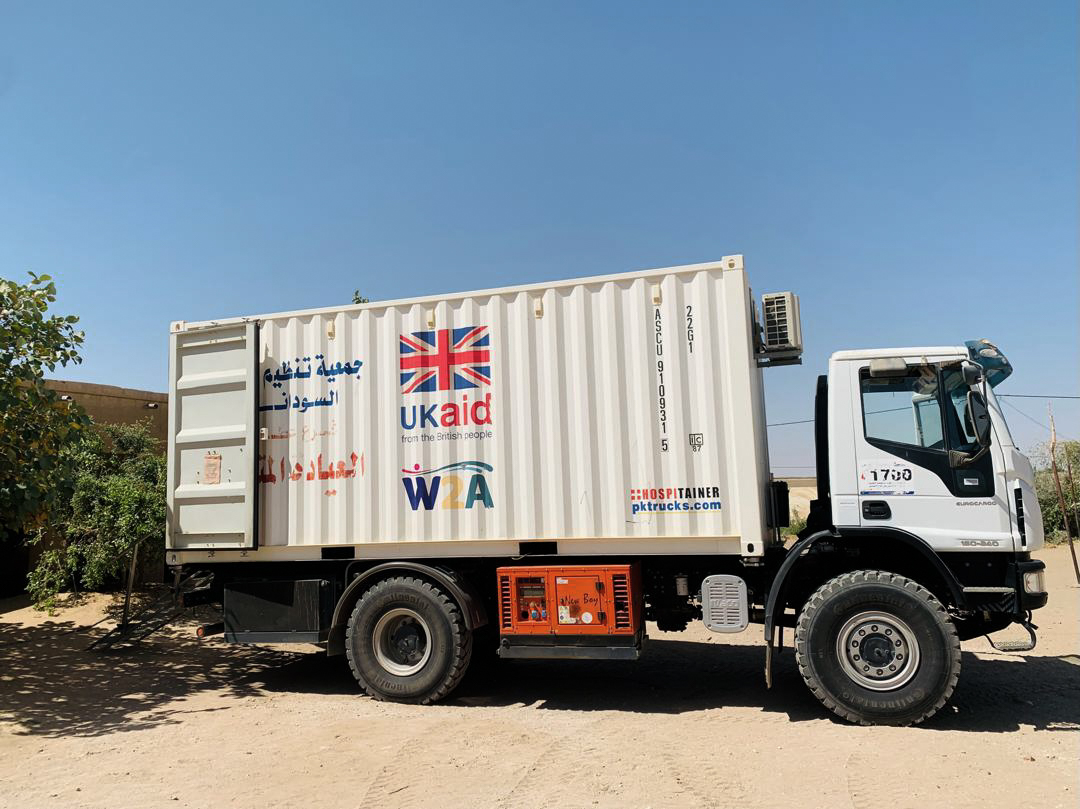
| 14 April 2025
Sudan’s First Mobile Telemedicine Clinic Brings Care to the Frontlines
15th April 2025, River Nile State, Sudan - In a groundbreaking step for healthcare access in Sudan, the Sudan Family Planning Association (SFPA) has launched the country’s first mobile telemedicine clinic in River Nile State. Funded by IPPF and FCDO, this innovation brings specialist remote care to people in isolated and conflict-affected areas, reducing the need for physical travel to health facilities. The mobile telemedicine clinic trucks are equipped with high-speed Starlink satellite internet and can travel to remote and rural locations. Clients receive essential treatment on-site and can connect directly, through secure video calls, with medical specialists across Sudan and internationally, including consultants based in Europe. This initiative is part of SFPA’s broader telemedicine project, designed to ensure the continued delivery of sexual and reproductive health services to the most vulnerable populations, particularly in areas where healthcare systems have collapsed due to conflict. Ms Kawthar, Executive Director of the SFPA branch in River Nile State, noted that the launch of the mobile telemedicine clinic, in Quoz Al-Halq, marks the beginning of a new era in healthcare service delivery within the state. “This project represents a landmark moment in Sudan’s healthcare history. We face enormous challenges in reaching people affected by conflict and displacement with essential health services. But this clinic changes what’s possible. We can now deliver integrated healthcare solutions through smart technologies – we’re breaking down barriers to health.” This innovation comes as Sudan approaches the third year of a brutal conflict, which began on 15 April 2023. Over 12.5 million people have been forcibly displaced[i], and more than two-thirds of the population are in need of humanitarian aid[ii]. Rates of sexually transmitted infections and gender-based violence, including sexual violence, have risen sharply[iii]. Many clinics and hospitals have been destroyed or abandoned. There is a severe shortage of qualified medical personnel, many of whom have fled the country. Access to care has disappeared entirely in some areas. SFPA facilities and staff have also been directly affected by the conflict, with nine of its clinics attacked, resulting in the tragic loss of volunteers and healthcare workers. Amid these challenges, SFPA managed to reach 9.8 million humanitarian clients in 2024. The new mobile telemedicine clinic offers a leap forward in how care can be delivered. It will provide: In-person and digital health consultations Psychosocial support for survivors of gender-based violence Awareness campaigns on reproductive health and sexually transmitted infections Fully integrated digital referral system, linking primary care with specialised medical facilities. Dr Siham Gaber, Director of Digital Health Interventions and Services at SFPA, said the initiative reflects the Association’s vision to harness technology for sustainable healthcare delivery in crisis contexts. “The mobile telemedicine clinic is a significant step forward in improving access to reproductive health services. It enables remote medical consultations and connects patients with doctors and specialists without the need for long-distance travel. This is especially important for women, youth and displaced people, who often face serious risks just to access a health facility. Now, they can get the right care where they are - safely and with dignity.” Mr El-Shafie Mohamed Ali, Executive Director of SFPA, added: “This clinic is not just a mobile health unit. It represents a comprehensive model for integrating telemedicine solutions into the provision of healthcare services. It contributes to expanding coverage and narrowing the health gap caused by conflict and insecurity.” The first phase of the project will see mobile telemedicine clinics deployed in five key states: River Nile, Red Sea, Kassala, Gedaref and Blue Nile. A second expansion phase will begin in May and aims to extend coverage across all 15 states where SFPA operates. This will ensure broader access to services for those most in need. “We remain dedicated to innovation and the scaling of digital solutions to ensure every Sudanese citizen, regardless of their location or circumstance, has access to quality healthcare,” said Mr El-Shafie Mohamed Ali. For more information and to speak to SFPA staff in Sudan, please email [email protected] ------- About the Sudan Family Planning Association The Sudan Family Planning Association (SFPA) was established in 1965 by pioneers in obstetrics and gynaecology in response to increases in maternal, neonatal and infant mortality and morbidity. As the statistics show, Sudan is a country in great need of frontline sexual and reproductive health (SRH) services. Advocacy, and undertaking information, education and communication (IEC) programs are critical. In 2024, SFPA provided 43.4 million services to 12.6 million clients (9.8 million of which were humanitarian clients) through 26 static clinics, 39 mobile clinics, 1499 community-based distributors, private physicians and associated clinics. About the International Planned Parenthood Federation The International Planned Parenthood Federation (IPPF) is a global healthcare provider and a leading advocate of sexual and reproductive health and rights (SRHR) for all. We are a movement of 150 Member Associations and Collaborative Partners with a presence in over 146 countries. Building on a proud history of 70 years of achievement, we commit to lead a locally owned, globally connected civil society movement that provides and enables services and champions sexual and reproductive health and rights for all, especially the under-served. We advocate for a world where people are provided with the information they need to make informed decisions about their sexual health and bodies. We stand up and fight for sexual and reproductive rights, and against those who seek to deny people their human right to bodily autonomy and freedom. We deliver care that is rooted in rights, respect, and dignity - no matter what. [i] https://www.unrefugees.org/news/sudan-crisis-explained/ [ii] https://humanitarianaction.info/plan/1220 [iii] https://www.unwomen.org/en/news-stories/press-release/2024/09/sudan-humanitarian-crisis-has-catastrophic-impact-for-women-and-girls-with-two-fold-increase-of-gender-based-violence
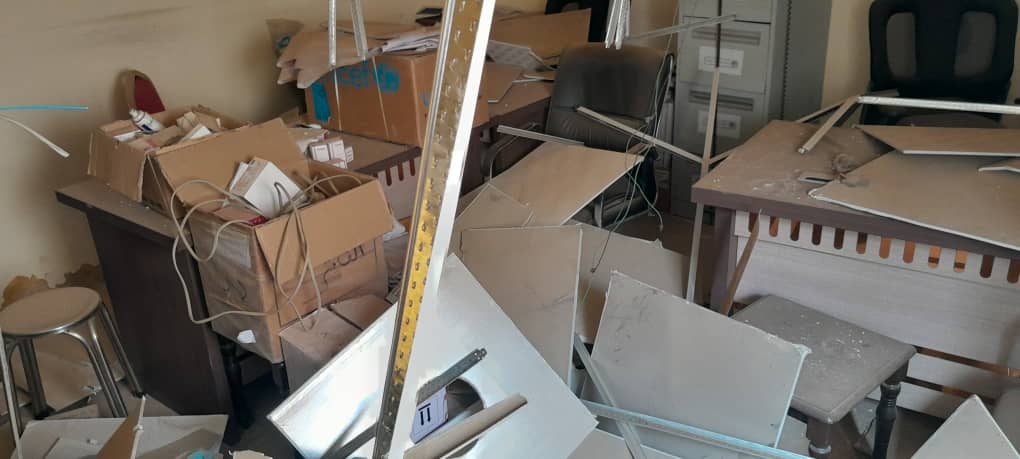
| 02 July 2024
Another of our clinics in Sudan has been attacked, one less safe place for women and girls to get sexual and reproductive healthcare
Haz click aquí para leer este posicionamiento en español. Khartoum, 2 July 2024: Another horrendous attack on one of our healthcare clinics in Sudan has occurred this week. Several staff and volunteers from our Member Association in Sudan, the Sudan Family Planning Association (SFPA), have now been injured or killed by the Rapid Support Forces (RSF). Our clinic in El Fasher has been destroyed, meaning there is one less option for women and girls to receive lifesaving sexual and reproductive healthcare in the region. For over a month, ongoing battles around El Fasher, the capital city of North Darfur, have been taking place.The RSF, who have stationed themselves 10 kilometres from the city, have been indiscriminately shelling military and civilian targets. One of our SFPA volunteers, Mahasen Abdul Jabbar, was killed after being hit by gunshot at the clinic. This morning, Dr Daifallah Mohammed, a volunteer family medicine specialist in our El Fasher clinic, also died as a result of the warfare. The RSF bombardments have also severely injured several of our staff: Dr Marwa, a doctor at the Integrated Centre in El Fasher, was hit by shrapnel in her leg. A midwife at Abu Shouk centre, Halima Abdullah Adam, was hit and four of her children were injured and evacuated. The house of the guard of Abu Shouk centre was hit, killing his daughter and wounding four of his other children. One of our nurses has been hit with shrapnel and has been transferred to hospital and is in critical condition and all contact with her has been lost. The RSF has also been kidnapping our patients, their whereabouts unknown. This latest attack is on top of previous attacks on our clinics in Sudan, which destroyed our facilities in Khartoum and El Fashir and health centres run by SFPA between 7-9 September 2023. Women and girls in Sudan are facing an upsurge in sexual and conflict-related violence. Our staff have witnessed firsthand the impact of this heinous crime on the most vulnerable people, including women, girls and other marginalized groups. We previously reported that rape victims and survivors are struggling to obtain contraception, abortion medication and post-exposure anti-viral medications. They face severe and life-threatening consequences, including loss of family support and homes and shelters and increased risk of suicide. Survivors are afraid to seek medical treatment because of the stigma and fear of reprisals from rape. Fadoua Bakhadda, Regional Director, Arab World Region, said: “We unequivocally condemn all violence against civilians, especially against health centers that are attacked while providing essential services to those in need. Such acts are an affront to humanity and the sanctity of care. The murders, displacement and destruction in Sudan must stop. It is vital that warring parties remember their obligations under International Humanitarian Law, which include ensuring the protection of civilians and the protection of health structures and health personnel.” Dr Alvaro Bermejo, Director-General of IPPF, said: “We are devastated to learn of another attack on one of our clinics in Sudan, and the injuries and loss of lives to our staff and volunteers. Healthcare facilities, and most importantly, healthcare workers, must never be the target of war. The sexual and reproductive health and lives of 800,000 people in North Darfur – including women, children, and people with disabilities – are hanging in the balance as bombing and shelling cause widespread harm to civilians and severely disrupt the essential health services they very much depend on. Now, more than ever, our healthcare facilities must be protected so they can continue to provide care to the populations enduring these needless attacks. Our clinic, which previously was able to provide lifesaving sexual and reproductive healthcare such as prenatal care and contraceptives, is gone. Where will women and girls seek these services now? There must finally be a critical mass of people of conscience saying enough is enough in this forgotten crisis.” For more information and to speak to one of our staff in North Darfur, Sudan, please email [email protected] About the Sudan Family Planning Association The Sudan Family Planning Association (SFPA) was established in 1965 by pioneers in obstetrics and gynaecology in response to increases in maternal, neonatal and infant mortality and morbidity. As the statistics show, Sudan is a country in great need of frontline sexual and reproductive health (SRH) services. Advocacy, and undertaking information, education and communication (IEC) programs are critical. In 2023, SFPA provided 38 million services through 25 clinics, 272 associated clinics, 39 mobile clinics, 1494 CBD/CBS, and digital/Virtual channels. Since the start of the crisis on 15 April 2023, the association teams were successful in providing 8 million services through 25 SDPs and 10 million services through non damaged associated and mobile clinics. SFPA was able to assist 1,183 deliveries under bombardment and provided 170 943 treatments of HIV in its static clinics. About the International Planned Parenthood Federation The International Planned Parenthood Federation (IPPF) is a global healthcare provider and a leading advocate of sexual and reproductive health and rights (SRHR) for all. We are a movement of 150 Member Associations and Collaborative Partners with a presence in over 146 countries. Building on a proud history of 70 years of achievement, we commit to lead a locally owned, globally connected civil society movement that provides and enables services and champions sexual and reproductive health and rights for all, especially the under-served. We advocate for a world where people are provided with the information they need to make informed decisions about their sexual health and bodies. We stand up and fight for sexual and reproductive rights, and against those who seek to deny people their human right to bodily autonomy and freedom. We deliver care that is rooted in rights, respect, and dignity - no matter what.

| 01 February 2024
Cases on the rise and vital life-saving treatments running low for Ethiopian refugees in Sudan living with HIV/AIDS
Since the influx of Ethiopian refugees into Sudan began in November 2020 following military unrest in the Tigray region, most humanitarian assistance has been focused on food, shelter, and primary health services. In response to this, the Sudan Family Planning Association (SFPA) established two clinics in Um Rakouba and Tunaydbah refugee camps to meet the needs of sexual and reproductive health (SRH) services. This includes comprehensive care of HIV/AIDS, allowing people living with HIV (PLHIV) to continue antiretroviral therapy (ARV) with privacy and confidentiality. Their services also involve the prevention and syndromic management of other sexually transmitted infections. The current emergency situation in Sudan has led to an estimated displacement of 7.6 million people across Sudan's 18 states, with over 13,000 reported deaths. This crisis is causing serious challenges to the already stretched health system. The increase of internally displaced people (IDPs) during the last nine months has also affected the provision of health services for the general population. The Government of Sudan, with the assistance of national and international partners, is going to huge efforts to ensure health coverage for IDPs and refugees. However, among the current national plans and funding, healthcare for HIV positive refugees is not adequately addressed. SFPA is also facing challenges providing SRH care, especially in the refugee camps, as they struggle to keep up with the numbers of IDPs - which are increasing dramatically by the day. SFPA provides SRH services in collaboration with the Sudan National AIDS Control Program (SNAP) and Al Gadarif SMOH. The total number of refugees living with HIV has now reached a tipping point, with 758 current cases recorded so far. So far, all clients have been able to regularly receive their ARV treatment. Many of them have reached zero viral load due to good adherence to treatment, meaning that the levels of HIV in the body are so low that the virus cannot be passed on. However, due to a shortfall of funding and resources, the risk of the discontinuation or interruption of ARVs may result in viral rebound, immune decompensation, and the progression of the virus. The higher percentage of newly discovered cases (10.4% of newly arrived refugees tested positive to HIV) also indicates that there is a new spread of HIV, not only amongst the youth population inside the camps, but also host communities. Given the current condition of refugee camps in Al Gadarif State, failure to adequately provide for people living with HIV/AIDS and prevent further transmissions may lead to catastrophic outcomes - not only in the camps but nationwide. About the Sudan Family Planning Association (SFPA) SFPA is a key SRH service provider in Sudan through its 15 branches covering 14 states1with a solid track record of delivering services in humanitarian settings. SFPA continues to fulfil its mandate and commitment to provide essential SRH and non- SRH services to refugees through an Australia Aid-supported emergency response to Ethiopian refugee crisis from 2021-2022 and continued with support from the Women’s Refugee Commission (WRC) until 31 December 2023, providing health services including testing, counselling, prevention of mother to child transmission, care and treatment services and ensure the enrolment of PLHIV in the ARVs regimen. Banner credits: IPPF/Hannah Maule-ffinch/Sudan

| 04 December 2023
Rapes, unplanned pregnancies and sexual and gender-based violence on the rise in Sudan’s forgotten war
Khartoum, 4 December 2023 — As the war in Sudan enters its eight month with no end in sight, widespread conflict-related sexual and gender-based violence (SGBV) has continued unabated, including reports of mass rapes, sexual exploitation and sexual harassment which demonstrate how sexual violence is being used as a tool of war to subjugate, terrorise and punish women and girls. Since the war between Sudan’s Rapid Support Forces and the Sudanese Armed Forces erupted on April 15th, reports of ethnically targeted sexual and gender-based violence have escalated across Sudan, leading to a surge in unplanned pregnancies and sexually transmitted infections. The International Criminal Court (ICC) in The Hague said in July it is investigating the hostilities in Darfur, including reports of killings, rapes and crimes against children. Rape has often been used as a weapon of war over the years in Sudan, human rights groups have said. Sexual violence is prohibited in conflict, and the accounts of rape could constitute war crimes and crimes against humanity. The prevailing conflict and social unrest in various regions of Sudan have created an environment rife for SGBV, leaving countless individuals exposed to the gravest violations of their most intimate rights. Deeply disturbing accounts of gang rapes, sexual assault, harassment, and other forms of sexual, physical and psychological violence have emerged, highlighting the urgent need for comprehensive sexual and reproductive healthcare for survivors. IPPF’s local member association in Sudan, the Sudan Family Planning Association (SFPA) has been providing these services across Sudan since the outbreak of the war, including counselling, medical assistance, and referrals for survivors of SGBV. Despite unprovoked attacks on six SFPA facilities which have so far killed one youth volunteer and injured numerous clients and staff, as well as interrupted the delivery of some health services, SFPA has continued to work in conflict-affected areas through their large network of community based distributors and mobile clinics. Dr Seham Jaber, the director of Digital Health Interventions and Services at SFPA said: “We have noticed escalating rates of sexual and gender-based violence in Sudan since the outbreak of the war in April. Violence against women and girls is occurring at the hands of militants, as well as an increase in domestic and intimate partner violence, including rape. Young girls and boys are living in overcrowded shelters are reporting to us cases of sexual harassment and abuse." Confidentiality, sensitivity and compassion are crucial to SFPA’s work, because many survivors of sexual violence don’t seek medical treatment due to the fear of social stigma and reprisals. SFPA's website and hotline have seen a considerable increase in traffic for reports of SGBV from the community since the start of the war. In response, SFPA is also running community awareness and education campaigns on SGBV, and is enlisting the support of local Imams to promote gender equality, and foster a culture of respect and consent. For media inquiries or to speak to one of our staff in Sudan, please contact [email protected] About the Sudan Family Planning Association The Sudan Family Planning Association (SFPA) was established in 1965 by pioneers in obstetrics and gynecology in response to increases in maternal, neonatal and infant mortality and morbidity. Sudan is a country in great need of frontline sexual and reproductive health (SRH) services. In 2022, SFPA provided 26 million services through 24 clinics, 261 associated clinics, and 37 mobile clinics. Since the start of the war on 15 April 2023; the Association teams have been successful in providing 14,706,000 services through 24 SFPA facilities , mobile clinics, mobile teams ,CBDs and partners clinics . SFPA was able to assist 1,145 deliveries under bombardment and provided 167,000 treatments of HIV&AIDS “HIV screening and care for PLHIV” through its static clinics. Mobile clinics are used to offer integrated SRH services including HIV/STI services and condom distribution, STI testing and management, HIV testing and treatment for HIV opportunistic infections, referrals for ARV treatment including PMTCT and awareness sessions both at mobile clinics and at the community level by community health promoters and community base distributors (CBDs). About the International Planned Parenthood Federation IPPF, through its 149 Member Associations and collaborative partners, delivers high-quality sexual and reproductive healthcare and helps advance sexual and reproductive rights, especially for marginalized people with diverse needs that are currently unmet. IPPF's Member Associations and partners are locally owned, independent organisations, which means the support and care they provide are informed by local expertise and context. IPPF advocates for a world where people have the information they need to make informed decisions about their sexual and reproductive health and their bodies. We stand up and fight for sexual and reproductive rights and against those who seek to deny people their human right to bodily autonomy and sexual and reproductive freedom. We deliver care rooted in rights, respect, and dignity for all - no matter what.
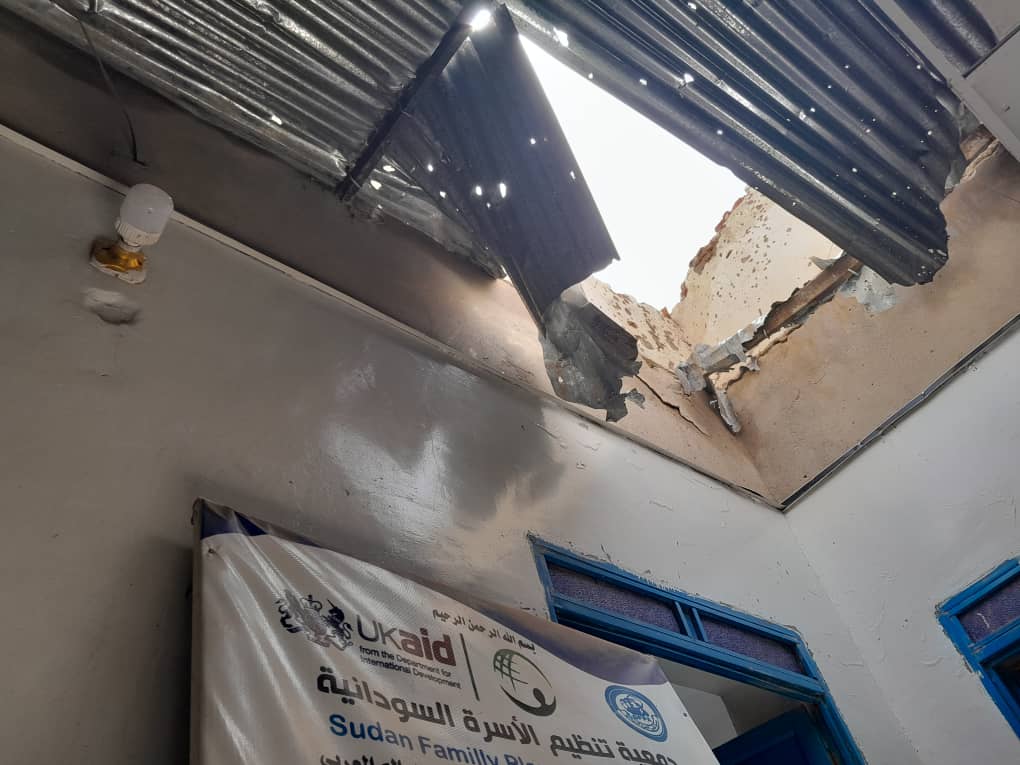
| 11 September 2023
IPPF Statement on RSF Attacks Against Sudan Family Planning Association Health Facilities
Statement from Dr Alvaro Bermejo, IPPF Director General: The International Planned Parenthood Federation condemns the multiple attacks in Khartoum and Elfashir (North Darfur) against clinics and health centers run by the Sudanese Family Planning Association (SFPA) between 7-9 September. Unprovoked attacks against the health facilities in South Khartoum (Elshik Wad Hamad) and in Elfashir City (Aboshok Clinic) have destroyed the infrastructure of the facilities, injured clients and staff, and interrupted the delivery of the most needed health services for vulnerable people of Sudan, especially women and girls of reproductive age. These attacks, just like the previous attacks against health facilities and medical professionals since the outbreak of violence in the country began on 15 April, will prolong the suffering of the Sudanese people. IPPF requests the protection of civilians and civilian institutions, especially healthcare facilities, to ensure the provision of healthcare and the basic humanitarian necessities for the Sudanese people. For media requests, contact [email protected] About the Sudan Family Planning Association The Sudan Family Planning Association (SFPA) was established in 1965 by pioneers in obstetrics and gynecology in response to increases in maternal, neonatal and infant mortality and morbidity. As the statistics show, Sudan is a country in great need of frontline sexual and reproductive health (SRH) services. Advocacy, and undertaking information, education and communication (IEC) programs are critical. In 2022, SFPA provided 26 millions of services through 24 clinics, 261 associated clinics, and 37 mobile clinics . Since the start of the crisis in 15th April; the association teams was successful in providing 2,500,000 services through 24 SFPA facilities and 8,500,000 services through non damaged associated and mobile clinics. SFPA was able to assist 1145 deliveries under bombarding and provided 167000 treatments of HIV in its static clinics.
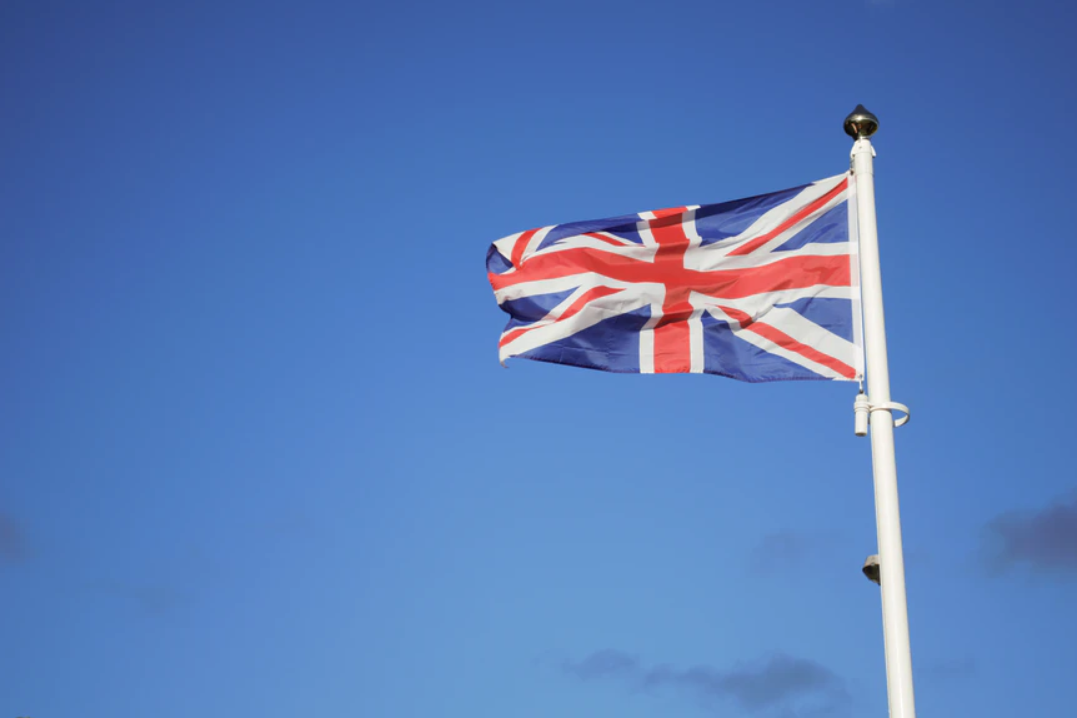
| 17 November 2022
UK Autumn budget doesn't go far enough
If you are covering the UK autumn budget and reporting on foreign aid, you may find the below statement from the International Planned Parenthood Federation (IPPF) helpful: “The UK government has already decimated the aid budget and its reputation through severe economic mishandling, cutting billions from the very things that protect people during economic, political and social upheaval, including life-saving sexual and reproductive healthcare. “It is also the only country to be spending the majority of its dedicated overseas aid budget within its own borders, taking advantage of legislation to pay for refugee and asylum costs in the UK rather than increasing domestic and overseas budgets accordingly. “The UK government cannot continue to fight the fire of one humanitarian crisis by diverting much-needed resources from other vulnerable people, nor continue to balance its books on the backs of the poorest people in the world - who, as MP Andrew Mitchell stated, will be damaged, maimed, or die as a result. “This government promised to give women and girls the freedom they need to succeed and prevent the worst forms of human suffering worldwide. If it is to deliver on its promises and revive its sunken reputation, it must spend dedicated budgets correctly, support people in the UK and beyond appropriately, and MP Andrew Mitchell and the Chancellor must ensure a return to the 0.7% as soon as possible.”

| 18 May 2022
UK government publishes new international development strategy
The UK government has released its long-awaited International Development Strategy (IDS) which details the UK’s approach to international development moving forward. The strategy sets out the FCDO's priorities as: Deliver honest and reliable investment, building on the UK’s financial expertise and the strengths of the City of London, and delivering the Prime Minister’s vision for the Clean Green Initiative, supporting partner countries to grow their economies sustainably. Provide women and girls with the freedom they need to succeed, unlocking their future potential, educating girls, supporting their empowerment and protecting them against violence. Provide life-saving humanitarian assistance and work to prevent the worst forms of human suffering, prioritising our funding and being a global leader in driving a more effective international response to humanitarian crises. Take forward our work on climate change, nature and global health. We are putting the commitments of our Presidency of G7 and COP26, our global leadership in science and technology, and our COVID-19 response, at the core of our international development offer. Dr Alvaro Bermejo, Director-General of the International Planned Parenthood Federation, said: "While, in theory, the UK’s new international development strategy prioritizes women and girls, it is unclear how the government will provide ‘the freedom they need to succeed’ while simultaneously cutting billions from the very things that help achieve this, including unhindered access to life-saving sexual and reproductive healthcare which helps keep girls in school, protects them from a lifetime of poverty and helps prevents untimely maternal deaths. "It is also unclear how the UK will prevent the worst forms of human suffering in humanitarian contexts when the 2021 aid cuts left millions of women across Afghanistan, Ethiopia, Ukraine, Sudan and Syria and Yemen with no control over their bodies, their futures, or their lives. And more so, while this government chooses to distribute the dedicated aid budget to fund other government departments rather than increasing overall budgets. "Until this government returns to the 0.7% target, this strategy will be little more than lip service from a government that knowingly robbed women and girls of their freedom and futures during the upheaval of a global pandemic when continued solidarity, support and humanitarian assistance from the wealthiest nations was most needed." For media enquiries, please contact Karmen Ivey on [email protected] or [email protected] About the International Planned Parenthood Federation The International Planned Parenthood Federation (IPPF) is a global service provider and advocate of sexual and reproductive health and rights for all. For over 65 years, IPPF through its 118 Member Associations and 15 partners, has delivered high-quality sexual and reproductive healthcare and helped advance sexual rights, especially for people with intersectional and diverse needs that are currently unmet. Our Member Associations and partners are independent organizations that are locally owned, which means the support and care they provide is informed by local expertise and context. We advocate for a world where people are provided with the information they need to make informed decisions about their sexual health and bodies. We stand up and fight for sexual and reproductive rights, and against those who seek to deny people their human right to bodily autonomy and freedom. We deliver care that is rooted in rights, respect, and dignity - no matter what.
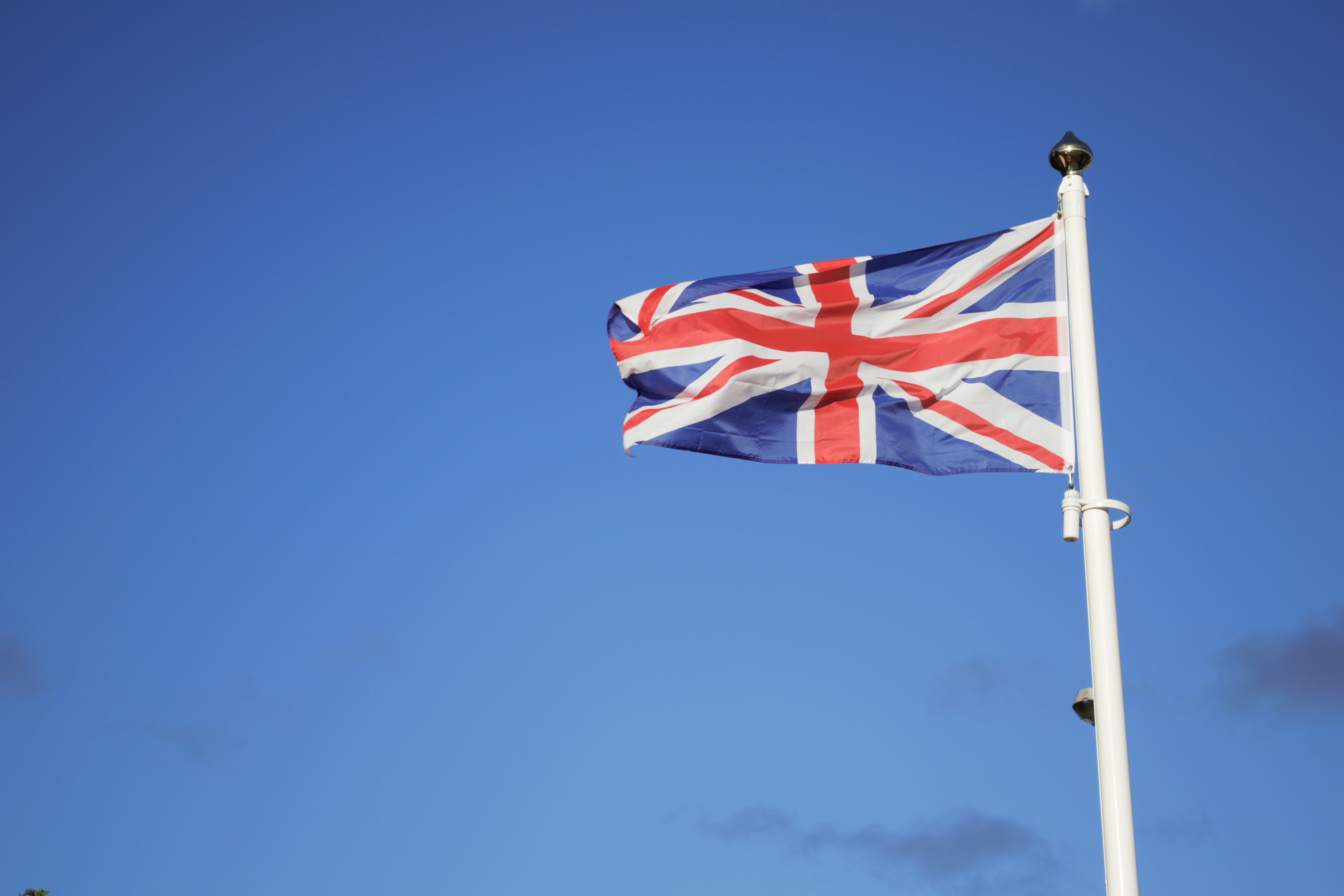
| 12 April 2022
FCDO provisional 2021 UK aid spending shows grim reality of aid cuts
Today, the Foreign, Commonwealth & Development Office (FCDO) published its provisional statistics report on UK aid spending for 2021. The total overall aid spend was £11.5 billion, down from £14.5 billion in 2020 following the UK government's reduction to overseas development aid (ODA) from 0.7 per cent to 0.5 per cent of gross national income (GNI), citing the economic challenges posed by the COVID-19 pandemic. ODA improves the lives of people around the world, helping them access the healthcare they deserve, including lifesaving sexual and reproductive healthcare. It also helps tackle global disease, eliminate poverty, provide humanitarian assistance during conflict and reduce the impact of climate change. Dr Alvaro Bermejo, Director-General for IPPF, said: “While not surprising, the provisional UK aid spend for 2021 shows the grim reality of making such severe cuts during the tremendous global upheaval of a pandemic, when continued solidarity, support and humanitarian assistance from the wealthiest nations is most needed. “The government already knew from the equalities impact assessment that these cuts to promised funds would be devastating for women, girls and diverse groups, who disproportionally experience the effects of poverty, disease and climate change while also bearing the burden of violence, especially in conflict. “Not only that, but the government also chose to distribute the dedicated aid budget to other government departments. This includes a staggering £915 million to the Home Office and counting so-called ‘donations’ of excess COVID vaccines to other countries, which could have been given to those in need instead. The aid cuts left millions of women in Ukraine with no control over their bodies, their futures, or their lives, just as it did in Afghanistan, Ethiopia, Yemen, Sudan and Syria. Today, the role of the UK in building a better, safer world is more critical than ever if there is any hope of reversing the impacts of the cuts and the government must return to the 0.7% as soon as possible – the lives and futures of people depend on it”. Key statistics include: The provisional ODA:GNI ratio for 2021 was 0.5 per cent, or £11.5 billion. In 2021, UK Official Development Assistance (ODA) was £11,496 million, a decrease of £2,982 million (20.6 per cent decrease) on 2020. In 2021, UK bilateral ODA was £7,086 million (a decrease of 25.7 per cent) while U.K. multilateral ODA was £4,411 million (a decrease of 10.8 per cent). The Foreign, Commonwealth and Development Office (FCDO) spent £8,308 million in 2021, compared with £10,664 million in 2020 (a decrease of £2,356 million). Non-FCDO5 spend on ODA in 2021 was £3,189 million, compared with £3,815 million in 2020 (a decrease of £626 m). The non-FCDO share was 27.7 per cent, up from 26.3 per cent in 2020. In 2021, £550 million of UK ODA was spent on activities to address the COVID19 pandemic². The Home Office spent £915 million of ODA in 2021 (an increase of 53.3 per cent). This was mostly due to increased accommodation costs for asylum seekers to ensure the measures set out in law were adhered to in limiting the spread of COVID-19. For media enquiries, please contact Karmen Ivey on [email protected] or [email protected] About the International Planned Parenthood Federation The International Planned Parenthood Federation (IPPF) is a global service provider and advocate of sexual and reproductive health and rights for all. For over 65 years, IPPF through its 118 Member Associations and 15 partners, has delivered high-quality sexual and reproductive healthcare and helped advance sexual rights, especially for people with intersectional and diverse needs that are currently unmet. Our Member Associations and partners are independent organizations that are locally owned, which means the support and care they provide is informed by local expertise and context. We advocate for a world where people are provided with the information they need to make informed decisions about their sexual health and bodies. We stand up and fight for sexual and reproductive rights, and against those who seek to deny people their human right to bodily autonomy and freedom. We deliver care that is rooted in rights, respect, and dignity – no matter what.

| 18 March 2022
Equalities Assessment: UK Government knew 2021 aid cuts would significantly impact women and girls
The Government’s Equalities Assessment shows that the government was well aware that the scale of the 2021 aid cuts to specific gender interventions, including Violence Against Women and Girls and Sexual and Reproductive Health and Rights, would disproportionately impact women, girls and people with protected characteristics such as those living with disabilities. The U.K. government were also aware that the aid cuts would reduce services available to survivors of sexual violence, including sexual exploitation, abuse and sexual harassment. Dr Alvaro Bermejo, Director-General of the International Planned Parenthood Federation, said: “We are pleased to see the long-awaited equalities assessment and are hopeful that public scrutiny will encourage the Government to double down on its efforts to champion and support equality. Government commitments are especially significant for 2022, given the scale of the 2021 aid cuts to specific gender interventions, including those helping to end Violence Against Women and Girls, Sexual and Reproductive Health and Rights programmes and targeted interventions aimed at reaching those left furthest behind – including people living with disabilities. “Today, the role of international aid in building a better, safer and equal world is more relevant than ever as the Ukrainian people look to governments across the globe to support them during the most severe humanitarian crisis Europe has seen in years. With the EU predicting up to 7 million displaced people and vulnerable refugee populations requiring distinct and personalised care, we ask the U.K Government to step up for the international community and return to the 0.7% aid target as soon as possible – the lives and futures of people across the globe depend on it.” Manuelle Hurwitz, Director of Programmes for IPPF, added: "The government knew the reduction to development programmes would completely contradict its priorities of getting 40 million more girls into education by 2025 flies in the face of achieving gender equality and yet it chose to proceed with them anyway. For media enquiries, please contact [email protected]
















